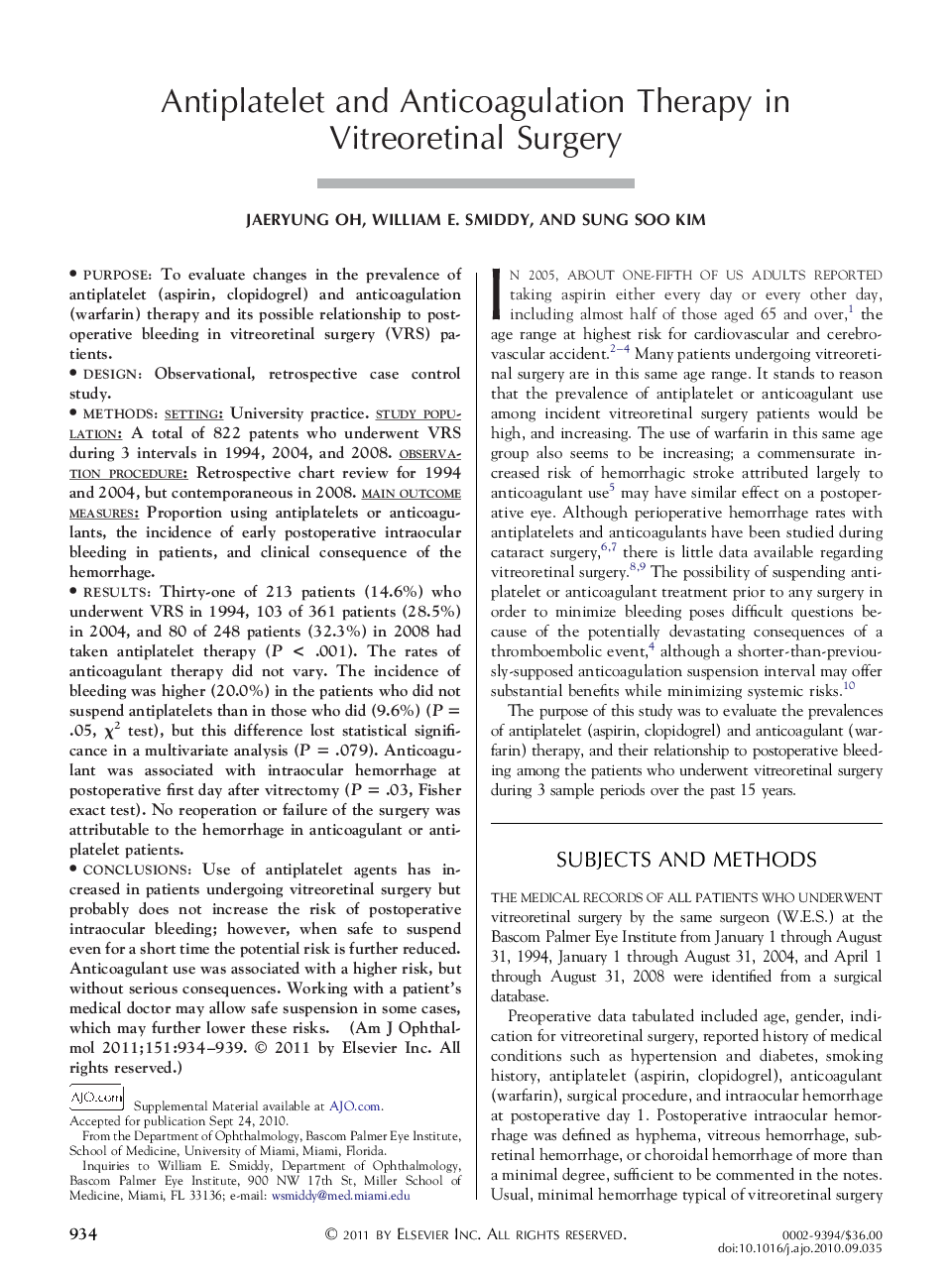| کد مقاله | کد نشریه | سال انتشار | مقاله انگلیسی | نسخه تمام متن |
|---|---|---|---|---|
| 6196099 | 1602172 | 2011 | 9 صفحه PDF | دانلود رایگان |

PurposeTo evaluate changes in the prevalence of antiplatelet (aspirin, clopidogrel) and anticoagulation (warfarin) therapy and its possible relationship to postoperative bleeding in vitreoretinal surgery (VRS) patients.DesignObservational, retrospective case control study.Methodssetting: University practice.study population: A total of 822 patents who underwent VRS during 3 intervals in 1994, 2004, and 2008.observation procedure: Retrospective chart review for 1994 and 2004, but contemporaneous in 2008.main outcome measures: Proportion using antiplatelets or anticoagulants, the incidence of early postoperative intraocular bleeding in patients, and clinical consequence of the hemorrhage.ResultsThirty-one of 213 patients (14.6%) who underwent VRS in 1994, 103 of 361 patients (28.5%) in 2004, and 80 of 248 patients (32.3%) in 2008 had taken antiplatelet therapy (P < .001). The rates of anticoagulant therapy did not vary. The incidence of bleeding was higher (20.0%) in the patients who did not suspend antiplatelets than in those who did (9.6%) (P = .05, Ï2 test), but this difference lost statistical significance in a multivariate analysis (P = .079). Anticoagulant was associated with intraocular hemorrhage at postoperative first day after vitrectomy (P = .03, Fisher exact test). No reoperation or failure of the surgery was attributable to the hemorrhage in anticoagulant or antiplatelet patients.ConclusionsUse of antiplatelet agents has increased in patients undergoing vitreoretinal surgery but probably does not increase the risk of postoperative intraocular bleeding; however, when safe to suspend even for a short time the potential risk is further reduced. Anticoagulant use was associated with a higher risk, but without serious consequences. Working with a patient's medical doctor may allow safe suspension in some cases, which may further lower these risks.
Journal: American Journal of Ophthalmology - Volume 151, Issue 6, June 2011, Pages 934-939.e3